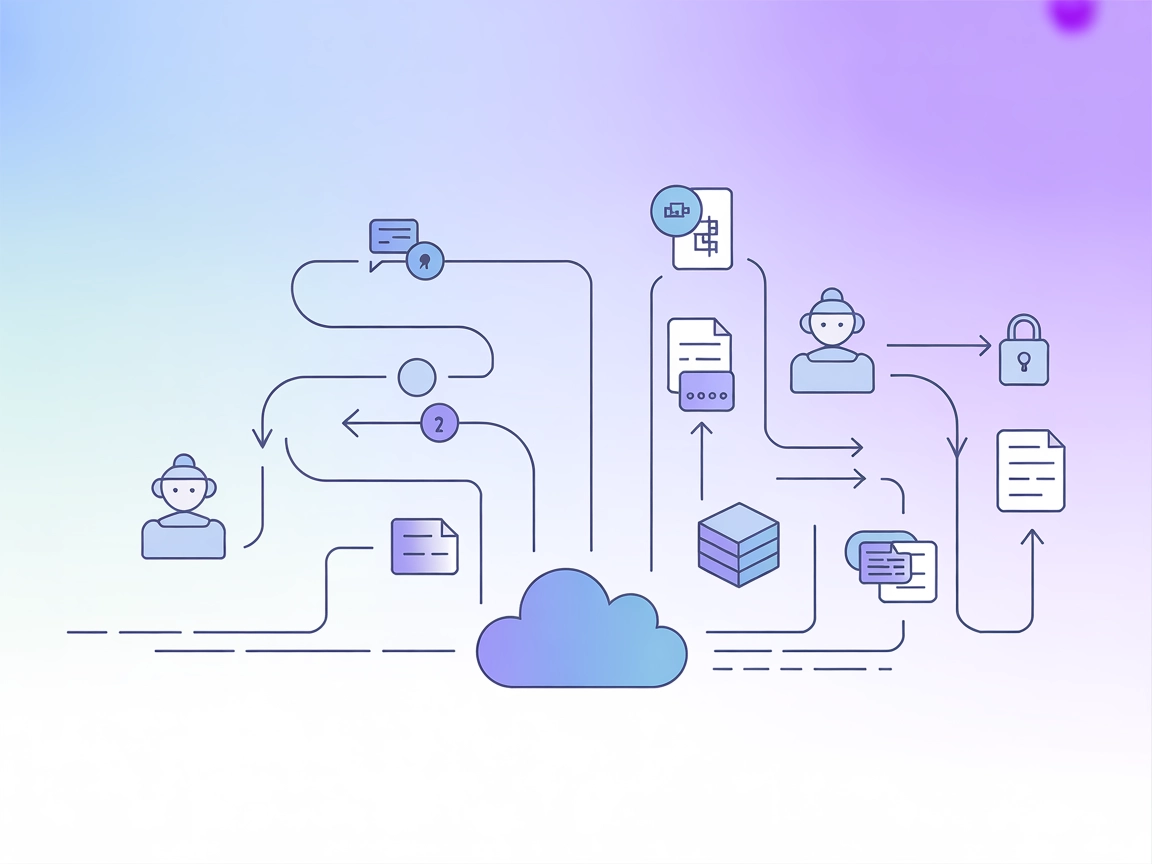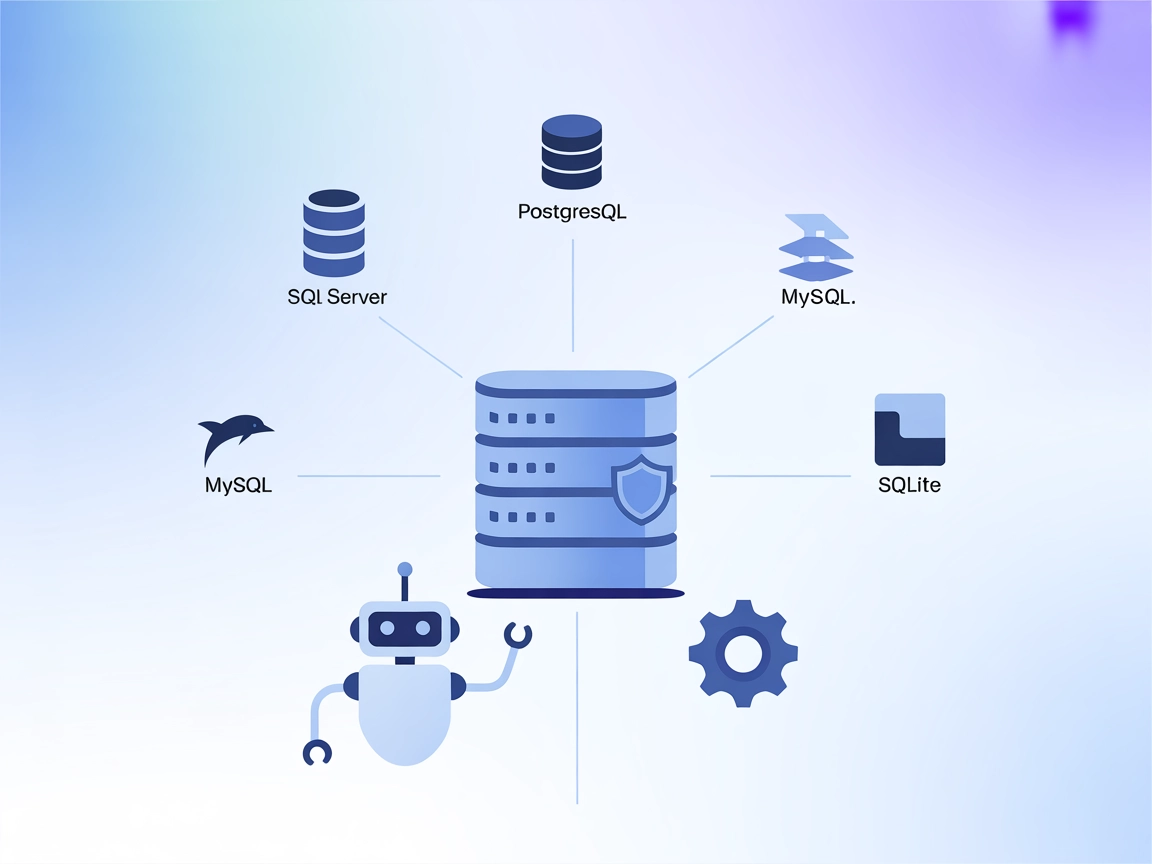
Model Context Protocol (MCP) Server
The Model Context Protocol (MCP) Server bridges AI assistants with external data sources, APIs, and services, enabling streamlined integration of complex workfl...

Enable secure, persistent, and multi-session AI memory with Membase MCP Server—a decentralized memory gateway for robust agent continuity and compliance.
FlowHunt provides an additional security layer between your internal systems and AI tools, giving you granular control over which tools are accessible from your MCP servers. MCP servers hosted in our infrastructure can be seamlessly integrated with FlowHunt's chatbot as well as popular AI platforms like ChatGPT, Claude, and various AI editors.
The Membase MCP (Model Context Protocol) Server acts as a lightweight, decentralized memory gateway for AI agents, connecting them to Membase for secure, persistent, and verifiable multi-session memory. Powered by Unibase, it allows AI assistants to upload and retrieve conversation history, interaction records, and knowledge, ensuring agent continuity, personalization, and traceability. By integrating with the Membase protocol, the server enables seamless storage and retrieval of memory data from the Unibase decentralized network, supporting use cases where persistent, tamper-proof memory is vital for AI-driven workflows.
No prompt templates are mentioned in the repository.
No explicit MCP resources are described in the repository.
uv runner).git clone https://github.com/unibaseio/membase-mcp.git{
"mcpServers": {
"membase": {
"command": "uv",
"args": [
"--directory",
"path/to/membase-mcp",
"run",
"src/membase_mcp/server.py"
],
"env": {
"MEMBASE_ACCOUNT": "your account, 0x...",
"MEMBASE_CONVERSATION_ID": "your conversation id, should be unique",
"MEMBASE_ID": "your sub account, any string"
}
}
}
}
Securing API Keys:
Use environment variables in the env block to keep credentials secure.
uv runner and Python).{
"mcpServers": {
"membase": {
"command": "uv",
"args": [
"--directory",
"path/to/membase-mcp",
"run",
"src/membase_mcp/server.py"
],
"env": {
"MEMBASE_ACCOUNT": "your account, 0x...",
"MEMBASE_CONVERSATION_ID": "your conversation id, should be unique",
"MEMBASE_ID": "your sub account, any string"
}
}
}
}
Note: Store sensitive info as environment variables.
uv).{
"mcpServers": {
"membase": {
"command": "uv",
"args": [
"--directory",
"path/to/membase-mcp",
"run",
"src/membase_mcp/server.py"
],
"env": {
"MEMBASE_ACCOUNT": "your account, 0x...",
"MEMBASE_CONVERSATION_ID": "your conversation id, should be unique",
"MEMBASE_ID": "your sub account, any string"
}
}
}
}
uv, Python).{
"mcpServers": {
"membase": {
"command": "uv",
"args": [
"--directory",
"path/to/membase-mcp",
"run",
"src/membase_mcp/server.py"
],
"env": {
"MEMBASE_ACCOUNT": "your account, 0x...",
"MEMBASE_CONVERSATION_ID": "your conversation id, should be unique",
"MEMBASE_ID": "your sub account, any string"
}
}
}
}
Securing API Keys:
All sensitive credentials should be passed in the env object as shown above to avoid hardcoding them.
Using MCP in FlowHunt
To integrate MCP servers into your FlowHunt workflow, start by adding the MCP component to your flow and connecting it to your AI agent:

Click on the MCP component to open the configuration panel. In the system MCP configuration section, insert your MCP server details using this JSON format:
{
"MCP-name": {
"transport": "streamable_http",
"url": "https://yourmcpserver.example/pathtothemcp/url"
}
}
Once configured, the AI agent is now able to use this MCP as a tool with access to all its functions and capabilities. Remember to change “MCP-name” to whatever the actual name of your MCP server is (e.g., “github-mcp”, “weather-api”, etc.) and replace the URL with your own MCP server URL.
| Section | Availability | Details/Notes |
|---|---|---|
| Overview | ✅ | |
| List of Prompts | ⛔ | No reusable prompt templates provided |
| List of Resources | ⛔ | No explicit MCP resources listed |
| List of Tools | ✅ | get_conversation_id, switch_conversation, save_message, get_messages |
| Securing API Keys | ✅ | Uses environment variables in configuration |
| Sampling Support (less important in evaluation) | ⛔ | Not mentioned |
Based on the available information, Membase MCP Server provides core memory tools and clear setup instructions, but lacks prompt templates, explicit MCP resources, and mention of sampling or roots support. This makes it functional for memory-centric workflows but limited in extensibility and advanced MCP features. Overall, it is practical but basic.
| Has a LICENSE | ⛔ (No license file present) |
|---|---|
| Has at least one tool | ✅ |
| Number of Forks | 4 |
| Number of Stars | 4 |
Membase MCP Server is a lightweight, decentralized gateway for AI agent memory, providing secure, persistent, and verifiable multi-session memory by connecting agents to the Unibase-powered Membase protocol.
It includes tools for retrieving the current conversation ID, switching between conversations, saving messages, and fetching conversation history, enabling robust multi-session and memory management for AI agents.
All interactions and messages are stored on a decentralized network for tamper-proof, auditable records. Credentials are passed via environment variables to keep them secure.
Yes. Add the MCP component in your FlowHunt flow and configure it with your Membase MCP details. Your AI agents will then be able to access all memory functions provided by the server.
No license file is present in the repository. Use at your own discretion.
Empower your AI workflows with decentralized, tamper-proof memory. Set up Membase MCP Server in FlowHunt and unlock advanced multi-session capabilities.

The Model Context Protocol (MCP) Server bridges AI assistants with external data sources, APIs, and services, enabling streamlined integration of complex workfl...

The Memgraph MCP Server bridges the Memgraph graph database with large language models, enabling real-time graph data access and AI-driven workflows via standar...

The MCP Database Server enables secure, programmatic access to popular databases like SQLite, SQL Server, PostgreSQL, and MySQL for AI assistants and automation...
Cookie Consent
We use cookies to enhance your browsing experience and analyze our traffic. See our privacy policy.